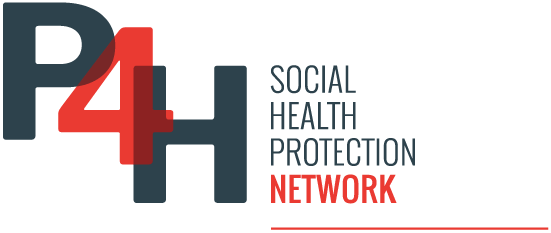The number of documents available on the P4H Network’s digital platform reflects the network’s scope of work. The majority of documents are primary source materials created by country nationals or resources produced by organizations working in social health protection (SHP) and/or health financing (HF).
IBRAVS Framework: A Practical Path to Value in Healthcare and Value-Based Payment Models (Brazil)
This document (in Portuguese) published by the Brazilian Institute of Value for Health (IBRAVS) in 2023, proposes a concrete path towards the implementation of a value approach to health.
Impact of Out-of-pocket Health Payments on Poverty and Alignment of Public and External Health Financing in Guinea
This World Bank paper (2024), available in both English and French, investigates the impact of out-of-pocket payments for health services in Guinea. Among the conclusions, authors point out that public and external health financing patterns reinforce health access...
Time to fully account for cost in monitoring financial protection and universal health coverage in low- and middle-income settings
This commentary, Beyond cost-effectiveness: a reflective commentary on adapting global health technology assessment for equity considerations in South Africa and other LMICs, published in the International Journal for Equity in Health on 14 November 2025, examines the...
Closing the deal: Financing our security against pandemic threats
The G20 High Level Independent Panel on Financing the Global Commons for Pandemic Preparedness and Response, reconvened by the South African G20 Presidency, has released a new report titled Closing the Deal: Financing Our Security Against Pandemic Threats. The report...
Primary health care policies and organization in South American countries
The report Primary health care policies and organisation in South American countries, authored by the Pan American Health Organization (PAHO) and published in 2025, provides a comprehensive examination of how primary health care (PHC) is structured, governed, and...
T20: Defining sustainable finance for health: A common taxonomy to mobilise global investment
The policy brief, published on 10 November 2025 under the Financing for Sustainable Development Task Force of the T20, a network of think tanks supporting the G20, responds to the sharp rise in private health investment since COVID-19, with healthcare private equity...
Legislative Decree No. 90 of 1997, Health Code (Guatemala)
The Health Code promulgated by the government of Guatemala in November 1997, establishes the duty of the Ministry of Health and the rights of citizens with respect to free health coverage (among others).
Health Vision 2020 “Health for all in Guyana” A National Health Strategy for Guyana 2013 -2020
This document authored by the Ministry of Health supports the Vision Health 2030, in a national strategic plan for health 2013-2020.
Health and economic effects of increased taxation on tobacco, alcohol, and sugar-sweetened beverages in China
China could achieve major health, economic, and fiscal benefits by increasing taxes on tobacco, alcohol, and sugar-sweetened beverages (SSBs). Modelling from 2026–2050 shows that 20% price hikes could prevent about 1.35 million deaths and generate over ¥6.8 trillion...
The nexus of adaptation and health finance
This adelphi briefing, The Nexus of Adaptation and Health Finance: Mapping Multilateral Climate Funds’ Investments and National Needs, examines how global adaptation finance is responding to rising health risks driven by climate change. Authored by Mathilde Wilkens...
Catalyzing solutions for equitable global access and sustainable financing for novel tuberculosis vaccines for adults and adolescents
The newly released WHO report, 'Catalyzing solutions for equitable global access and sustainable financing for novel tuberculosis vaccines for adults and adolescents', underscores the urgent need to transform the global response to tuberculosis through coordinated...
Navigating Health Reform: Lessons from Thailand’s UHC Journey
This article examines a case of rapid national health reform in a low-resource setting, highlighting how effective problem recognition, technical policy preparation, and political alignment enabled comprehensive expansion of health coverage. Key success factors...
Illness to poverty in India: a qualitative exploration of hardship financing for healthcare
Despite government efforts to control health expenditures in India, households in Kerala's Pathanamthitta district face substantial out-of-pocket expenses (OOPE) for medical care, forcing them to rely on hardship financing through borrowing and asset sales. This...
Indirect effects of long-term care insurance in China
This study examines how China's long-term care insurance (LTCI) affects hospital expenditures among disabled individuals ineligible for benefits, addressing a gap in existing research. Using a difference-in-difference approach with data from pilot cities and the China...
Transforming the Indian Private Sector for UHC
This paper develops a conceptual framework to integrate healthcare financing and delivery in India’s fragmented private sector so that competition promotes value rather than service volume. Drawing on international models from Israel, the U.S., Spain, Brazil, and the...
